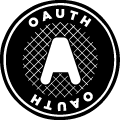 My Identiverse 2020 talk Enabling Scalable Multi-lateral Federations with OpenID Connect was just broadcast and is available for viewing. The talk abstract is:
My Identiverse 2020 talk Enabling Scalable Multi-lateral Federations with OpenID Connect was just broadcast and is available for viewing. The talk abstract is:
Numerous large-scale multi-lateral identity federations are in production use today, primarily in the Research and Education sector. These include national federations, such as SWAMID in Sweden and InCommon in the US, some with thousands of sites, and inter-federations among dozens of federations, such as eduGAIN. Yet these existing federations are based on SAML 2 and require the federation operator to poll the participants for their metadata, concatenating it into a huge file that is distributed to all federation participants nightly — a brittle process with significant scalability problems.
Responding to demand from the Research and Education community to migrate from SAML 2 to the simpler OpenID Connect protocol, the OpenID Connect working group has created the OpenID Connect Federation specification to enable this. The new approach incorporates lessons learned from existing SAML 2 federations — especially using a new, scalable approach to federation metadata, in which organizations host their own signed metadata and federation operators in turn sign statements about the organizations that are participants in the federation. As Shibboleth author Scott Cantor publicly said at a federation conference, “Given all my experience, if I were to redo the metadata handling today, I would do it along the lines in the OpenID Connect Federation specification”.
This presentation will describe progress implementing and deploying OpenID Connect Federation, upcoming interop events and results, and next steps to complete the specification and foster production deployments. The resulting feedback from Identiverse participants on the approach will be highly valuable.
As a late-breaking addition, data from the June 2020 Federation interop event organized by Roland Hedberg was included in the presentation.
You can also view the presentation slides as PowerPoint or PDF.
 The OpenID Connect Federation specification has been updated to add Security Considerations text. As discussed in the recent OpenID Connect working group calls, we are currently reviewing the specification in preparation for it becoming the third and possibly last Implementer’s Draft.
The OpenID Connect Federation specification has been updated to add Security Considerations text. As discussed in the recent OpenID Connect working group calls, we are currently reviewing the specification in preparation for it becoming the third and possibly last Implementer’s Draft.
